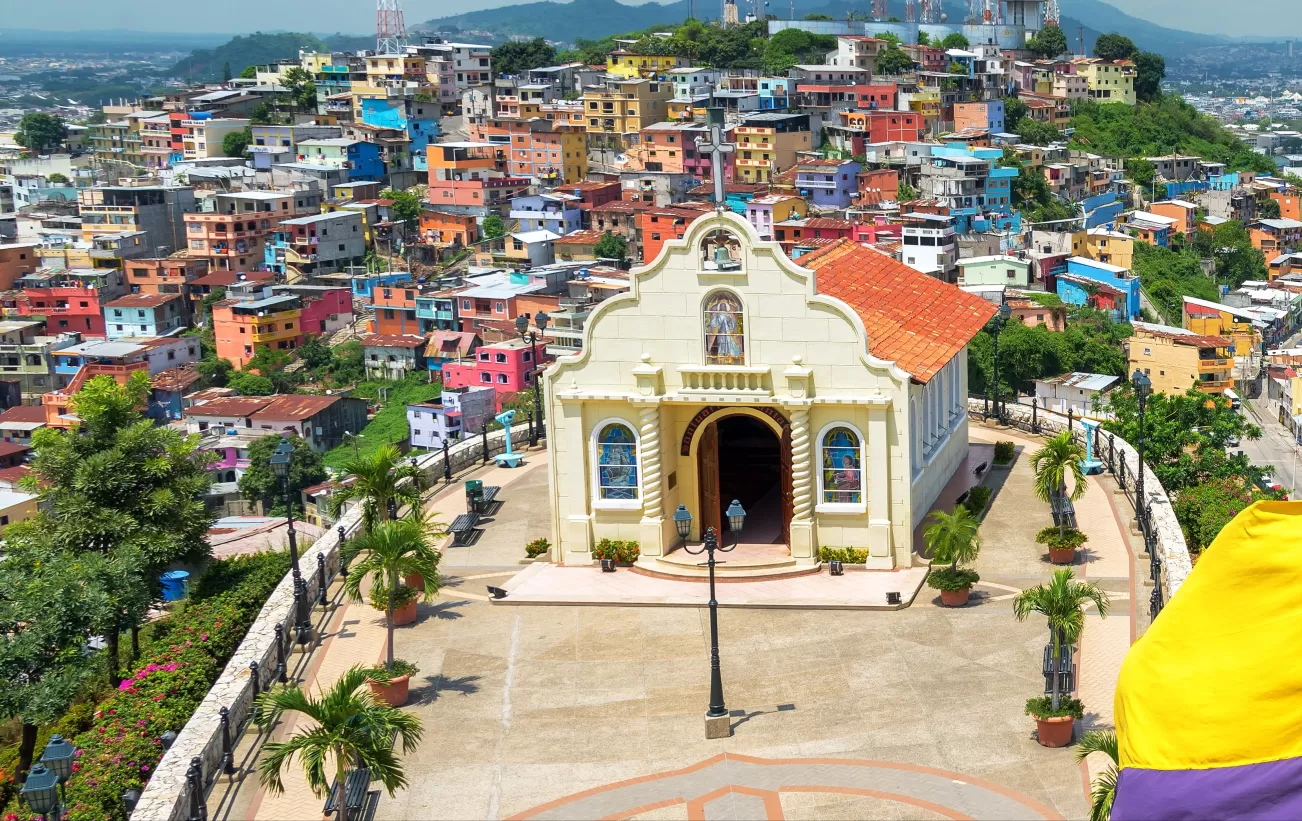
Ecuador is a small yet incredibly diverse country in South America, known for its rich history and vibrant culture. From ancient civilizations to colonial influences, Ecuador's past is a tapestry of fascinating events and milestones. Did you know that Ecuador was once part of the Inca Empire before Spanish conquistadors arrived in the 16th century? Or that it was the first country to declare independence from Spain in 1809? These historical nuggets are just the tip of the iceberg. Whether you're a history buff or simply curious about this intriguing nation, these 35 best Ecuador history facts will give you a deeper appreciation for its unique heritage. Buckle up for a journey through time that will leave you both informed and amazed!
Ancient Civilizations in Ecuador
Ecuador's history is rich with ancient civilizations that have left a lasting impact. These early societies laid the groundwork for the country's cultural and historical heritage.
- The Valdivia culture, dating back to 3500 BCE, is one of the oldest known cultures in the Americas.
- The Quitus people, who lived in the Quito region, were known for their advanced agricultural techniques.
- The Caras, another ancient group, are believed to have founded the city of Quito around 980 CE.
- The Cañari people, who lived in the southern highlands, were known for their resistance against the Inca Empire.
The Inca Empire's Influence
The Inca Empire, which extended into Ecuador, played a significant role in shaping the region's history. Their influence can still be seen today in various aspects of Ecuadorian culture.
- The Inca Empire conquered the Cañari people in the 15th century.
- The city of Tomebamba, now Cuenca, was an important Inca administrative center.
- The Inca road system, known as Qhapaq Ñan, included routes through Ecuador.
- The Inca introduced terrace farming techniques to the region.
Spanish Conquest and Colonization
The arrival of the Spanish in the 16th century marked a turning point in Ecuador's history. The conquest and subsequent colonization brought significant changes to the region.
- Francisco Pizarro's expedition reached Ecuador in 1531.
- The Spanish founded the city of Quito in 1534.
- The indigenous population suffered greatly due to diseases brought by the Spanish.
- The encomienda system was established, forcing indigenous people into labor.
Struggle for Independence
Ecuador's fight for independence from Spanish rule was a long and arduous process. The country eventually gained its freedom, but not without significant struggle.
- The first cry for independence in Quito occurred on August 10, 1809.
- The Battle of Pichincha, fought on May 24, 1822, was a decisive victory for independence forces.
- Simón Bolívar played a crucial role in Ecuador's independence movement.
- Ecuador became part of Gran Colombia before becoming a separate republic in 1830.
Modern Ecuador
Ecuador's modern history is marked by political changes, economic development, and cultural evolution. The country has faced numerous challenges but continues to grow and adapt.
- Ecuador experienced a period of political instability in the 19th century.
- The country adopted its first constitution in 1830.
- The discovery of oil in the 1960s significantly boosted Ecuador's economy.
- Ecuador became a member of the United Nations in 1945.
Cultural Heritage
Ecuador's rich cultural heritage is a testament to its diverse history. The country's traditions, languages, and customs reflect the influence of its ancient civilizations, the Inca Empire, and Spanish colonization.
- Ecuador is home to 14 indigenous nationalities, each with its own language and culture.
- The traditional music of Ecuador includes genres like pasillo and yaraví.
- The Inti Raymi festival, celebrating the sun god, is still observed by indigenous communities.
- Ecuadorian cuisine features dishes like ceviche, llapingachos, and cuy (guinea pig).
Natural Wonders and Biodiversity
Ecuador's history is also closely tied to its natural environment. The country's diverse ecosystems have played a crucial role in shaping its development and culture.
- The Galápagos Islands, discovered by Europeans in 1535, are a UNESCO World Heritage site.
- Ecuador is one of the most biodiverse countries in the world, with over 1,600 bird species.
- The Amazon Rainforest covers a significant portion of eastern Ecuador.
- The Andes Mountains run through the country, influencing its climate and agriculture.
Notable Historical Figures
Ecuador has produced many notable historical figures who have made significant contributions to the country's development and culture.
- Eugenio Espejo, an 18th-century intellectual, is considered a precursor to Ecuadorian independence.
- Eloy Alfaro, a key figure in Ecuador's liberal revolution, served as president in the early 20th century.
- Matilde Hidalgo, the first woman to vote in Ecuador and Latin America, was a pioneering feminist.
- Oswaldo Guayasamín, a renowned painter, is known for his powerful depictions of social injustice.
Modern Achievements and Challenges
Ecuador continues to make strides in various fields while facing ongoing challenges. The country's resilience and adaptability are evident in its recent history.
Ecuador's Rich Tapestry
Ecuador's history is a fascinating blend of indigenous cultures, colonial influences, and modern developments. From the ancient civilizations that first inhabited the region to the Spanish conquest and eventual independence, each period has left its mark. The country's diverse geography, including the Amazon rainforest, Andes mountains, and Galápagos Islands, has also played a significant role in shaping its history and culture.
Understanding these historical facts gives us a deeper appreciation for Ecuador's unique identity. Whether you're planning a visit or just curious about this South American gem, knowing its past enriches your experience. So next time you think of Ecuador, remember it's not just about stunning landscapes but also a rich, complex history that continues to evolve. Dive into its past, and you'll find a story as vibrant and diverse as the country itself.
Was this page helpful?
Our commitment to delivering trustworthy and engaging content is at the heart of what we do. Each fact on our site is contributed by real users like you, bringing a wealth of diverse insights and information. To ensure the highest standards of accuracy and reliability, our dedicated editors meticulously review each submission. This process guarantees that the facts we share are not only fascinating but also credible. Trust in our commitment to quality and authenticity as you explore and learn with us.


